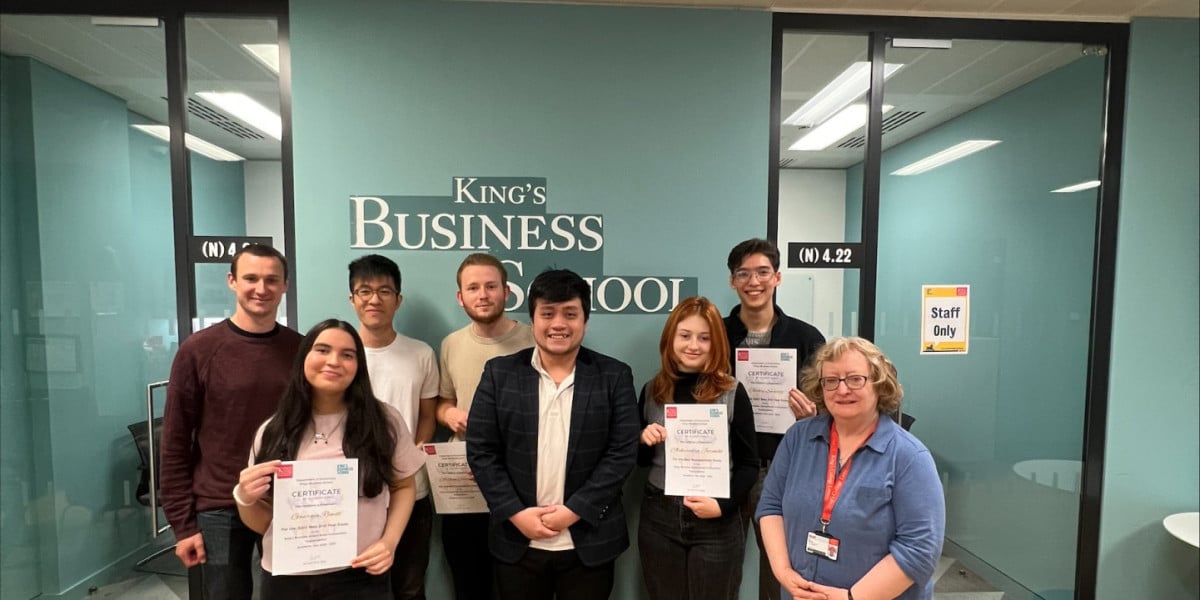
Stable needs, messy realities: Implications for Executive Education priorities in 2026
Reflections on the Chartered ABS ‘Executive Education Futures Survey’
- Home
- / Insights
- / Knowledge sharing
- / Promoting academic integrity in business student research
Promoting academic integrity in business student research

Authors

Canh Thien Dang
Department of Economics, King’s College London

An Nguyen
Department of Human Resource Management and Employment Relations, King’s College London
Emphasising academic integrity in higher education
In today's dynamic higher education landscape, maintaining academic integrity is essential. The prevalence of academic misconduct and ethical breaches underscores the need for robust measures to address these challenges. Despite the UK's reputation for academic excellence, issues such as plagiarism, research fraud, and unethical behaviour persist among students and faculty. To combat this, proactive efforts are necessary to foster integrity within learning environments. The rise of online resources and academic pressures has increased the likelihood of academic dishonesty. By engaging students in scholarly activities beyond traditional coursework, we aim to cultivate a culture of integrity and ethical conduct from the grassroots level. We also hope to contribute to the expansion of diverse pedagogical approaches to educating and engaging business students in academic research and collaborative activities.
King’s Business School initiative
In response to the need for promoting academic integrity, King’s Business School has launched an innovative initiative focused on student engagement. Recognising that students are the future leaders of academia, the initiative emphasises their active participation in shaping a culture of honesty and scholarly rigour.
Core components of the initiative:
Essay competition: Designed to enhance critical thinking and research skills, this competition invites undergraduate students from diverse disciplines to submit essays. The competition provides a platform for students to conduct thorough research and present their findings compellingly. The overwhelming response and high-quality submissions reflect the intellectual curiosity and academic prowess of our students. An award ceremony celebrates outstanding contributions, and selected essays are presented at prestigious academic conferences, providing students with valuable exposure to the scholarly community.
Workshops and student research conferences: A series of workshops and conferences are organised to nurture students' research and writing skills. These events offer forums for students to engage with experts, refine their research methodologies, and deepen their understanding of scholarly practices. Through interactive sessions and hands-on activities, students gain practical tools for academic success while fostering a spirit of collaboration and intellectual exchange.
Undergraduate research journal: An undergraduate research journal, managed by a team of talented students, serves as a platform for disseminating original research work. This journal amplifies the voices of aspiring scholars and promotes scholarly discourse. From manuscript submission to publication, the journal is student-driven, embodying academic autonomy and collaborative learning. It provides a space for students to highlight their research findings, engage in peer review, and contribute to academic discourse, thereby cultivating a sense of ownership and pride. The last two years have seen great interests from our students, with the themes of sustainability and AI and the labour market.
Pedagogical impacts
Cultivating ethical conduct: The initiative fosters ethical behaviour among students, essential for academic integrity. By participating in research competitions and student-run journals, students are immersed in an environment that champions honesty and scholarly rigour. This involvement helps students internalise the ethical responsibilities inherent in academic inquiry, promoting integrity as a fundamental value in all scholarly endeavours.
Empowering academic freedom and autonomy: Promoting academic freedom and autonomy is central to the initiative, encouraging independent thought and intellectual exploration. Students are empowered to explore topics of personal interest, free from traditional coursework constraints. This platform for student-led research and publication enhances academic discourse and instils a sense of ownership and agency in their learning journey.
Fostering collegiality, collaboration, and inclusivity of the business curricula: The initiative promotes collaboration and collegiality, core values of scholarly communities. Participation in research competitions and collaborative writing for student-run journals teaches students the importance of collective academic pursuits. Peer review processes ensure rigorous scholarly standards and foster mutual respect and support among peers, enhancing research quality and promoting academic integrity through collective responsibility.
Addressing misconduct and fraud: The initiative proactively addresses academic misconduct and fraud through transparency, accountability, and ethical conduct. Robust guidelines, rigorous evaluation processes, and peer review mechanisms mitigate risks of plagiarism and fabrication. Educational initiatives on responsible research conduct and ethical publishing practices equip students to navigate ethical dilemmas effectively, safeguarding the integrity of academic endeavours.
Conclusion
Our case study at King’s Business School illustrates the transformative potential of student engagement in research competitions and journals in bolstering academic integrity. By fostering ethical conduct, empowering academic freedom, nurturing collegiality, and addressing misconduct, the initiative helps cultivate a culture where integrity is a lived experience. As higher education evolves, such initiatives are vital in shaping a future where integrity underpins academic excellence.
